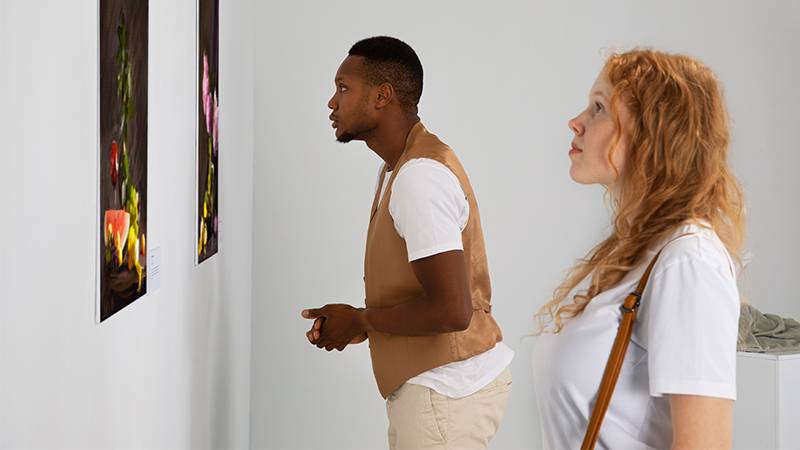New York City’s vibrant Soho neighborhood, known for its fashion landmarks, is now home to the United States’ first-ever Climate Museum. This innovative space, situated at 105 Wooster Street, aims to make a unique statement by intertwining climate advocacy with the world of art. Miranda Massey, the director of the Climate Museum, strategically chose this prime location to capitalize on Soho’s high foot traffic, drawing in a diverse crowd of locals and tourists, many of whom identify as climate conscious.
The museum’s design and exhibits are thoughtfully curated to highlight the intersection of climate crisis and global inequality. Visitors are greeted by a striking gray-scale world map designed like an accordion at the museum’s entrance. This map showcases a stark contrast: on one side, the world’s wealthiest countries, major contributors to greenhouse gas emissions, are marked in darker shades, while the other side reveals the nations most threatened by climate change. This visual representation underscores the disproportionate impact of climate change on countries that have contributed the least to the crisis, a topic Massey believes should be addressed through climate reparations.
A notable feature of the museum is an interactive map focusing on the historical issue of redlining in New York City. The map illustrates how decisions made nearly a century ago under the New Deal continue to disproportionately affect marginalized communities. It juxtaposes the redlining determinations from the 1930s, which were influenced by racial demographics, with current data showing that these same neighborhoods suffer from significantly higher temperatures. This correlation between historical discrimination and present-day climate vulnerability presents a powerful message about the long-term consequences of systemic inequality.
Toward the end of the exhibit are rolls of stickers emblazoned with phrases like “I will talk about climate justice” and “I will oppose the fossil fuel industry.” Blank stickers are also available for visitors to conjure up their own climate pledges.
Another eye-catching element is a large mural that spans the museum’s back wall. Commissioned from children’s book illustrator Greg Christie, the mural visually narrates the transition from the Industrial Revolution to the era of climate activism. Starting in grayscale to symbolize the onset of fossil fuel extraction, the mural gradually incorporates vibrant colors, representing the growing movement towards climate justice. This transition from a monochromatic past to a colorful future signifies hope and collective action, according to ABC News.
The museum also features a sticker wall, encouraging visitors to express their climate action intentions. Phrases like “I will talk about climate justice” and “I will oppose the fossil fuel industry” adorn the stickers, alongside blank ones for personalized pledges. Since its opening in October, thousands of stickers have been placed on the wall, with children actively participating by writing their intentions or drawing on postcards addressed to lawmakers, which the museum then mails.
The Climate Museum offers free admission and is open from Wednesday to Sunday, 1 p.m. to 6 p.m. The current exhibit in Soho will be available until April 28, providing a unique opportunity for visitors to engage with the pressing issue of climate change through an artistic lens. This pioneering museum not only educates but also empowers its visitors, emphasizing the vital role of art in climate activism and fostering a sense of community in the fight for environmental justice.
More inspiring green news similar to this:


